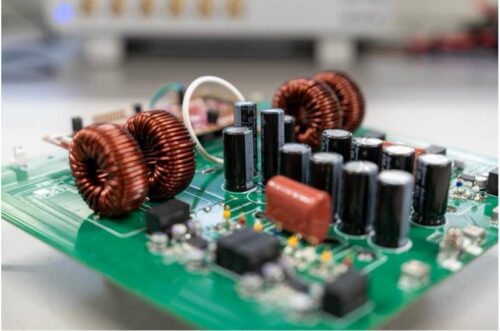This technology, promises to enhance the integration and management of DC microgrids, reducing energy loss and streamlining power systems worldwide.

DC-DC converters are crucial for managing power in systems that operate on direct current (DC), such as solar panels, electric vehicles, and computers. Traditionally, many devices and energy systems use alternating current (AC), but the necessity for AC-to-DC conversion can lead to energy loss. The research proposes a more efficient alternative by developing a power converter that can support the operation of DC microgrids. These microgrids integrate various DC energy sources directly, eliminating the need for conversion from AC, enhancing energy efficiency, and potentially simplifying infrastructure.
Researchers from Kobe University and National Chung Hsing University have made a significant breakthrough in DC-DC power conversion technology, potentially transforming the landscape of energy storage and conversion, particularly in renewable energy and electric vehicles. The study, published in the IEEE Transactions on Power Electronics, details a new power converter design that boasts an efficiency of up to 98.3%, a marked improvement over existing systems.
The converter designed by the team is versatile, capable of interfacing with a diverse range of energy sources and handling different voltage requirements flexibly. This flexibility is essential because each DC appliance and battery system may require different voltages, which can vary based on factors like battery charge and capacity. Additionally, the converter can operate bidirectionally, meaning it can manage energy both from and to storage solutions, such as batteries, which are used both as sources and sinks of energy.
A key feature of the new converter is its superior voltage ratio and the ability to self-balance inductor currents, which improves overall system stability and simplicity. The design also incorporates asymmetrical duty limit control, which is particularly beneficial for electric vehicle-connected DC microgrids, offering enhanced performance.
The development team, which includes expertise from multiple disciplines and has access to advanced facilities, conducted thorough experiments, simulations, and analyses to validate the converter’s design and performance. The successful prototype evaluation not only demonstrates the practical feasibility of the converter but also its scalability for broader applications. This ongoing work underscores the potential impact of the converter on future advancements in bidirectional DC-DC conversion technology, particularly for applications involving electric vehicles and the integration of renewable energy sources.
References: Shiqiang Liu et al, Over 98% Efficiency SiC-MOSFET based Four-Phase Interleaved Bidirectional DC-DC Converter Featuring Wide-Range Voltage Ratio, IEEE Transactions on Power Electronics (2024).






